CIA’s remarkable history contains chapter after chapter of men and women putting their own safety at risk in pursuit of a greater good: protecting American citizens from harm and upholding the values we hold so dear. The reality of our work is that it can come with real danger. Nowhere is this so tragically illustrated than in the bombing of the U.S. Embassy in Beirut 40 years ago, killing eight CIA officers who had stepped forward to serve in one of the most dangerous places in the world.
The “Jewel of the Mediterranean” at War
Lebanon—a small country on the eastern edge of the Mediterranean Sea—is rich in history, triumph, and tragedy. Its capital, Beirut, was once a glamorous destination for world-renowned celebrities in the 1960s. During Lebanon’s civil war (1975-90), however, Beirut became a very dangerous place. Sniper fire and artillery exchanges between rival factions were commonplace; car bombs, kidnappings, and assassinations occurred daily. By the time the civil war ended, the capital was pocked with ruins.
The Multinational Force in Lebanon, composed of U.S. and European military personnel, entered Lebanon in September 1982 in the midst of the war to help the Lebanese government maintain stability. Iranian-backed extremist groups, especially Hizballah and the Islamic Jihad Organization, condemned the presence of Western personnel.
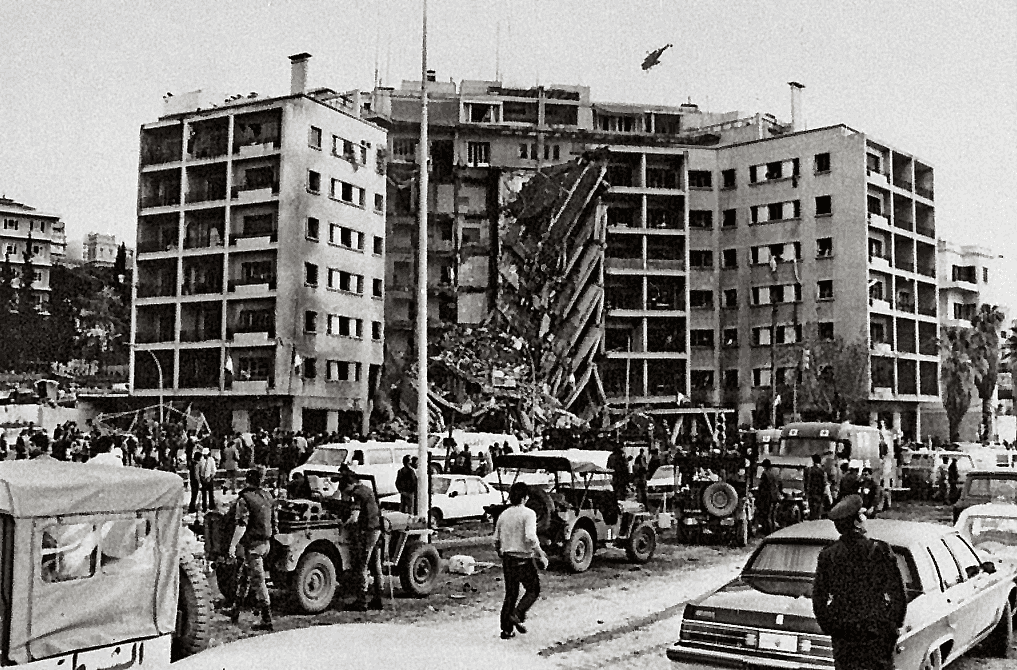
Aftermath of the attack on the U.S. Embassy in Beirut, 18 April 1983 (AP/World Wide Photos, www.state.gov)
That Fateful Day
At approximately 1pm local time on April 18, 1983, a suicide bomber crashed a truck into the front of the U.S. Embassy in Beirut and detonated 2,000 pounds of explosives. The massive blast killed 63 people, including 17 Americans, eight of whom were CIA officers, and wounded more than 100 others. The Islamic Jihad Organization, which later became part of Hizballah, claimed responsibility. The terrorists targeted the Embassy in an effort to force Americans to leave the country.
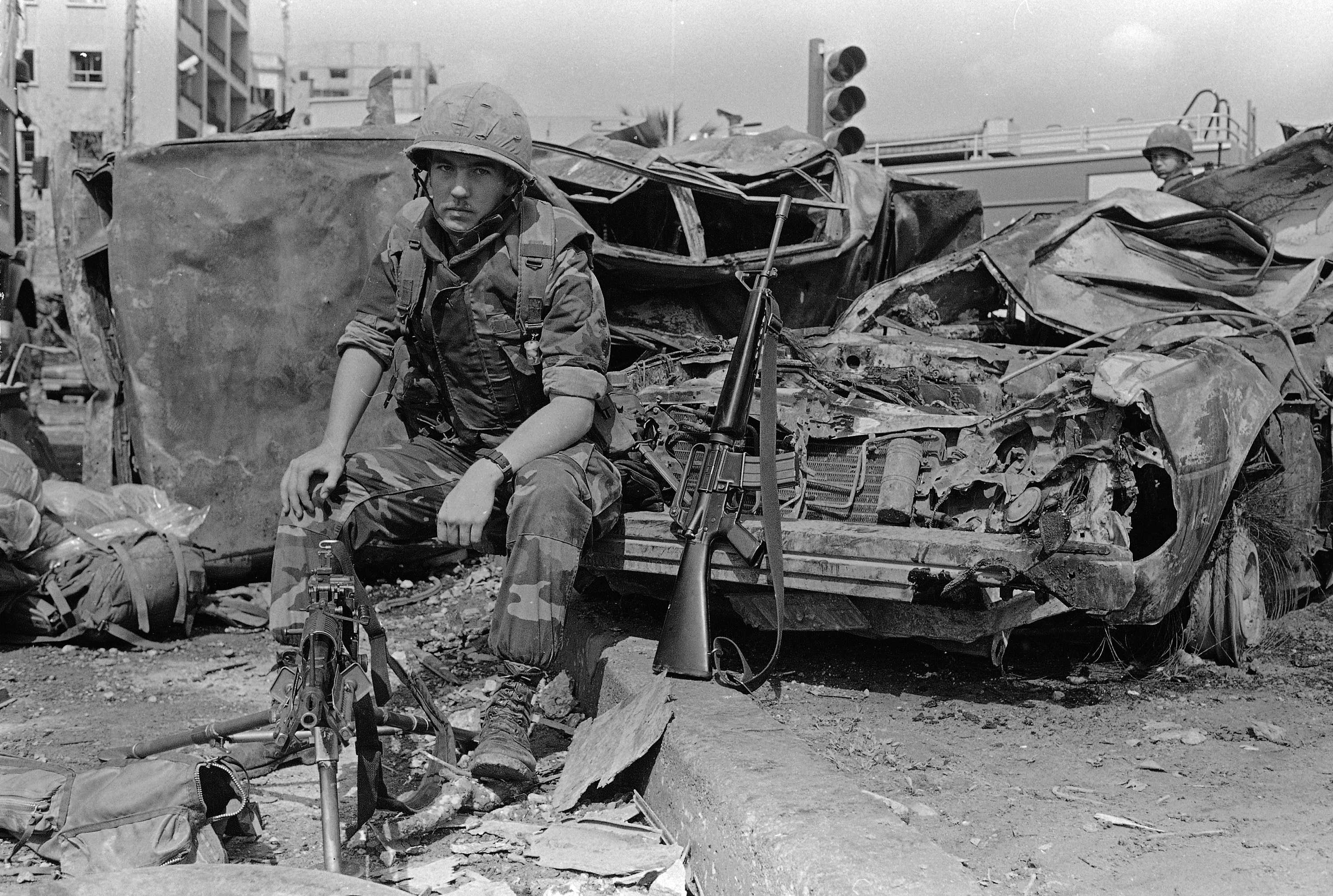
The day after the attack, a U.S. Marine on guard duty sits on the bumper of a car destroyed in the blast, 19 April 1983 (AP Photo/Bill Foley, www.state.gov)
Remembrance
The attack on the U.S. Embassy in Beirut remains the single greatest loss of lives in the Agency’s history. All of the fallen officers are honored with stars engraved on the CIA Memorial Wall at CIA Headquarters, a constant reminder of their courage, commitment, and the ultimate sacrifice they made for the nation.
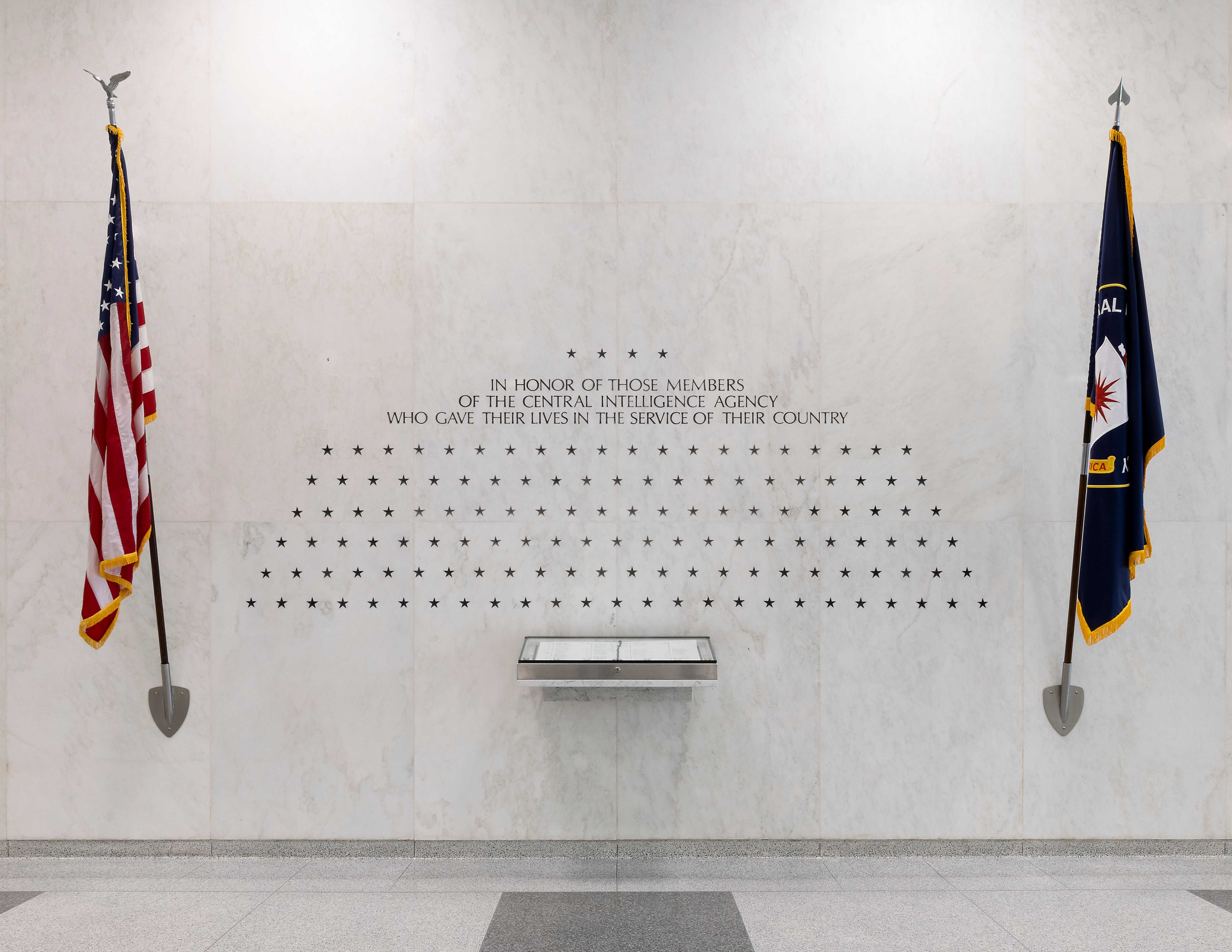
CIA Memorial Wall
Robert Ames

Bob—posthumously selected as one of the Agency’s first Trailblazers—was a 22-year CIA veteran and 49 years old at the time of his death. Bob, a well-respected Middle East expert, embodied a quiet strength and strong character and was just as comfortable sitting cross-legged in the Arabian desert with Bedouin shaykhs as he was in the White House briefing Presidents. He had a dry wit, keen sense of humor, and ability to foster confidence in young officers. Bob’s colleagues remember him fondly, one recalling, “He would work like a madman during the morning, and in the afternoon he would kick up his cowboy boots and read. He remained a student all of his life, especially a student of the Middle East.”
Phyllis Faraci

Phyllis, a modern-day “Renaissance woman,” was 46 years old at the time of her death. She traveled the world, never shying away from a task or assignment, no matter how dangerous – including volunteering to work in Beirut. Previously, Phyllis served several years in Vietnam and, after volunteering to extend her overseas tour there, was one of the last four Americans to evacuate the Mekong Delta when Saigon fell in April 1975.
Kenneth Haas

Ken, a nine-year CIA veteran, was Station Chief and 38 years old at the time of his death. Ken’s courage and resourcefulness were tested multiple times during his time with CIA. He was a rising star who aced his clandestine training and loved the intelligence business. He was known as a born leader and teacher who encouraged his fellow officers to work hard but lightened the load with laughter and friendship.
Deborah Hixon

Debbie, an eight-year CIA veteran, was only 30 years old at the time of her death. Debbie loved to ski in Colorado and play tennis. As a young woman fluent in French, she wanted to see the world and serve the nation. She was very close to her family, and they supported her decision to join the Agency. Armed with extraordinary motivation, professional skills, and bravery, Debbie volunteered for her assignment to work in Beirut despite the well-documented dangers. She made friends easily and several still keep in contact with her family.
Frank Johnston

Frank, a native of New York City and a 26-year CIA veteran, was 47 years old at the time of his death. He was a warm and giving officer who adopted the Agency, not only as his home, but also as his family. Frank was a consummate “man in the street” who was quick to share his professional techniques with the younger officers around him – leading them, guiding them, and caring about their development.
James Lewis

Jim, a 13-year CIA veteran fluent in Vietnamese, French, and Arabic, was Station Deputy Chief and 39 years old at the time of his death. Jim was dedicated to service to his country beginning with the ROTC as a young man, followed by service in the Vietnam War as a Green Beret, and later, joining CIA in 1970. In April 1975, while trying to escape from an airbase that was being overrun by the North Vietnamese, Jim was badly wounded, fell into enemy hands, and taken prisoner. After enduring relentless interrogation and torture at the hands of his captors, he was released in October of that year, returned to the United States, and eventually took on his final post in Beirut. Jim was known as a “gentle giant” who enjoyed cooking and entertaining friends. Jim’s wife, Monique, also lost her life in the attack.
Monique Lewis

Monique, who had just begun her first day with CIA as a secretary to the office in Beirut, was only 36 years old at the time of her death. She was of Vietnamese descent, spoke fluent French, and had earned a degree in pharmacology. Monique and Jim are the only wife and husband team honored on CIA’s Memorial Wall.
William Sheil

Bill, a 17-year CIA veteran, was 59 years old at the time of his death. He was a highly qualified Directorate of Operations paramilitary officer with extensive experience in Southeast Asia; he served three CIA tours of duty in Vietnam and one in Laos in a variety of operational roles. A true patriot and U.S. Army veteran, before joining CIA, he served in his generation’s largest wars—World War II, the Korean War, and the Vietnam War. Although on the verge of retirement, he volunteered his expertise to train foreign partners in Beirut combatting terrorism.
* * * * * * * *
Carrying On the Dangerous Mission
“These gallant Americans understood the danger they faced, and yet they went willingly to Beirut. And the dastardly deed, the act of unparalleled cowardice that took their lives, was an attack on all of us, on our way of life and on the values we hold dear. We would indeed fail them if we let that act deter us from carrying on their mission of brotherhood and peace.”
President Ronald Reagan, April 23, 1983
After the bombing, the remaining U.S. personnel continued their mission from a new location in East Beirut. Still, the terror and violence continued.
In October 1983, just six months after the U.S. Embassy attack, suicide bombers from Hizballah and Islamic Jihad Organization targeted the U.S. Marine barracks and the French Paratrooper barracks in Beirut, killing 241 American and 58 French personnel, respectively. For the Marines, it was the deadliest single-day attack since the World War II Battle of Iwo Jima in 1945.
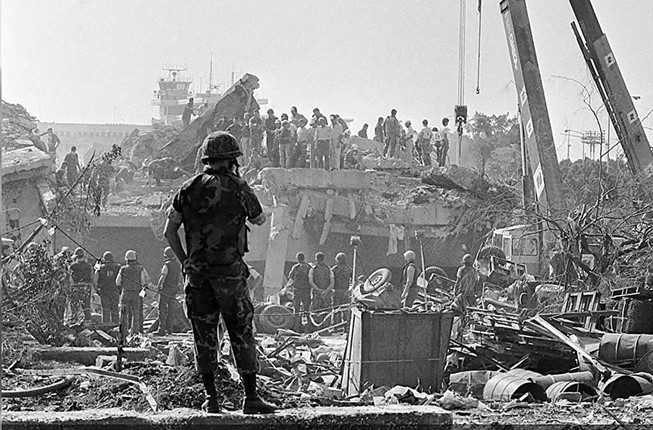
Aftermath of the attack on the U.S. Marine barracks in Beirut on October 23, 1983
Five months after the Marine barracks bombing, Islamic terrorists kidnapped CIA Station Chief in Lebanon, William Buckley, who had bravely volunteered for the post. On a clear morning in March 1984, Bill was abducted while he was enroute to work. His captivity set off one of the most painful periods for the Agency. Despite a massive and grueling U.S. rescue effort, the terrorists held Bill hostage until his murder in 1985. Bill was symbolically laid to rest at Arlington National Cemetery with full military honors in 1988; his remains were returned to the U.S. three years later. Bill is also honored with a star on CIA’s Memorial Wall.

Looking Back, Moving Forward
Despite major reconstruction after Lebanon’s civil war, trials and tribulations followed the Lebanese people throughout the years. Even so, downtown Beirut remains one of the great metropolitan destinations of the world, filled with wonderful restaurants, bars, cafes, galleries and other venues, which showcase the Lebanese love of life and art. Alongside the beauty, visible remnants remind locals and visitors of the horrors of war.
Beirut will always hold a meaningful place in CIA history. CIA remembers our own, not because of how they died, but how they lived – believing in the nobleness of the Agency’s mission and in the goodness of America.
